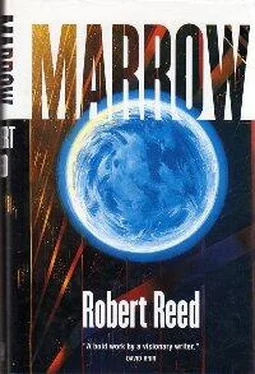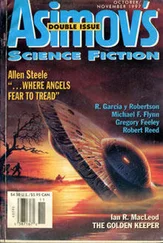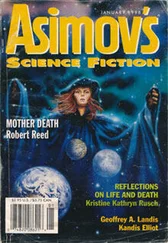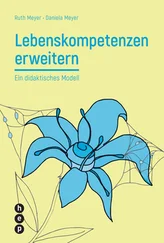Robert Reed - Marrow
Здесь есть возможность читать онлайн «Robert Reed - Marrow» весь текст электронной книги совершенно бесплатно (целиком полную версию без сокращений). В некоторых случаях можно слушать аудио, скачать через торрент в формате fb2 и присутствует краткое содержание. Год выпуска: 2000, ISBN: 2000, Издательство: Tor Books, Жанр: Фантастика и фэнтези, на английском языке. Описание произведения, (предисловие) а так же отзывы посетителей доступны на портале библиотеки ЛибКат.
- Название:Marrow
- Автор:
- Издательство:Tor Books
- Жанр:
- Год:2000
- ISBN:0-312-86801-4
- Рейтинг книги:5 / 5. Голосов: 1
-
Избранное:Добавить в избранное
- Отзывы:
-
Ваша оценка:
- 100
- 1
- 2
- 3
- 4
- 5
Marrow: краткое содержание, описание и аннотация
Предлагаем к чтению аннотацию, описание, краткое содержание или предисловие (зависит от того, что написал сам автор книги «Marrow»). Если вы не нашли необходимую информацию о книге — напишите в комментариях, мы постараемся отыскать её.
Marrow — читать онлайн бесплатно полную книгу (весь текст) целиком
Ниже представлен текст книги, разбитый по страницам. Система сохранения места последней прочитанной страницы, позволяет с удобством читать онлайн бесплатно книгу «Marrow», без необходимости каждый раз заново искать на чём Вы остановились. Поставьте закладку, и сможете в любой момент перейти на страницу, на которой закончили чтение.
Интервал:
Закладка:
There was a woman, a strange soul named Wune, who went up onto the hull and remained there. Not only did she accept her duties, she embraced them. She declared that she was living a morally pure life, full of contemplation and essential work. With a prophets manipulative talents, she found converts to her newborn faith, and her converts became a small, unified population of philosophers who refused to leave the hull.
“Remora’ began as an insult used by the captains. But the insult was stolen by the unexpected culture, becoming their own proud name.
A Remora never left his lifesuit. From conception until his eventual death, he was a world onto himself, elaborate recycle systems giving him water and food and fresh oxygen, his suit belonging to his body, his tough genetics constantly battered by the endless flux of radiations. Mutations were common on the hull, and cherished. What’s more, a true Remora learned to direct his mutations, rapidly evolving new kinds of eyes and novel organs and mouths of every nightmarish shape.
Wune died early, and she died heroically.
But the prophet left behind thousands of believers. They invented ways to make children, and eventually they numbered in the millions, building their own cities and artforms and passions and, Miocene presumed, their own odd dreams. In some ways, she had to admire their culture, if not the individual believers. But as she watched Orleans piloting the skimmer, she wondered—not for the first time—if these people were too obstinate for the ship s good, and how she could tame them with a minimum of force and controversy.
That’s what Miocene was thinking when the coded message arrived.
They were still a thousand kilometers from Port Erinidi, and the message had to be a test. Black level; Alpha protocols? Of course it was a test!
Yet she followed the ancient protocols. Without a word, she left Orleans, walking to the back of the cabin and closing the lavatory door, scanning the walls and ceiling, the floor and fixtures, making sure that not so much as a molecule-ear was present.
Through a nexus-link buried in her mind, Miocene downloaded the brief message, and within her mind’s eye, she translated it. No emotion showed on her face. She wouldn’t let any leak out. But her hands, more honest by a long ways, were wrestling in her long lap—two perfectly matched opponents, neither capable of winning their contest.
The REMORA delivered her to the port.
Sensing the importance of the moment, Miocene tried to leave Orleans with a few healing words. “I’m sorry,” she lied. Then she placed a hand on the gray lifesuit, its psuedoneurons delivering the feel of her warm palm to his own odd flesh.Then quietly and firmly, she added. “You made valid points.The next time I sit at the Master’s table, I’ll do more than mention today’s conversation. That’s a promise.”
“Is that what it’s called?” said the blue tongues and rubbery mouth. “A promise?” The obnoxious shit.
Yet Miocene offered him a little stiff-backed bow, in feigned respect, then calmly slipped off into the port’s useful chaos.
Passengers were roiling into a tall capsule-car. They were an alien species, each larger than a good-sized room, and judging by their wheeled, self-contained lifesuits, they were a low-gravity species. She nearly asked her nexuses about the species. But she thought better of it, lowering her gaze and moving at a crisp pace, appearing distracted as she slipped between two of them, barely hearing voices that sounded like much water pushed through a narrow pipe.
“A Submaster,” said her implanted translator.
“Look, see!”
“Smart as can be, that one!”
“Powerful!”
“Look, see!”
Miocene’s private cap-car waited nearby. She passed it without a glance, stepping into one of the public cars that had brought the aliens up to Port Erinidi. It was a vast machine, empty and perfect. She gave it a destination and rented its loyalties with anonymous credits. Once she was moving, Miocene removed her cap and her uniform, habit making her lay them out on top of a padded bench. She couldn’t help but stare at the uniform, examining her reflection, her face and long neck borrowing the folds and dents of that mirrored fabric.
“Look, see,” she whispered.
She accessed command accounts set up by and known only to her. The compliant cap-car found itself with a series of new destinations and odd little jobs. Waiting at one location was a small wardrobe of nondescript clothes.
Miocene left the clothes untouched for now. During the next hour and over the course of several thousand kilometers, she picked up a pair of sealed packages. The first package contained a small fortune in anonymous credits, while the other opened itself, revealing a scorpionlike robot free of manufacturer’s codes or any official ID.
The robot leaped at the single passenger.
With a patient concern, the car asked, “Is something wrong, madam? Do you need help?”
“No, no,” Miocene replied, trying to lie still on a long bench.
The scorpions tail reached into her mouth, then shoved hard enough to split modern bone. Her naked body straightened, in shock. For an instant, in little ways, the Submaster died. Then her disaster genes woke, fixing the damage with a crisp efficiency. Bone and various neurological linkups were repaired. But the nexuses that had been buried inside Miocene, part of her for more than a hundred millennia, had been yanked free by the titanium hooks of that narrowly designed robot.
The robot ate the nexuses, digesting them in a plasma furnace.
It did the same with the Sub master’s elaborate uniform.
Then the furnace turned itself inside out, and with a flash of purple-white light, what was metal turned to a cooling puddle and a persistent stink.
A tiny amount of spilled blood needed to be burned away. Once that chore was finished, Miocene dressed in a simple brown gown that could have belonged to any human tourist, and from the attached satchel, she pulled out bits of false flesh that quivered between her cool fingers, begging for the opportunity to change the appearance of her important face.
Three more times, the car stopped for its odd passenger.
It stopped inside a major arterial station, then at the center of a cavern filled with bowing yellowish trees and a perpetual wind. And finally, it eased into a quiet neighborhood of well-to-do apartments, the resident humans and aliens among the wealthiest entities in the galaxy, each owning at least a cubic kilometer of the great ship.
Where the passenger disembarked, the car didn’t remember, much less care.
After that, it hurried toward its initial destination. But those coordinates had always been an impossibility, and the AI pilot was too impaired to realize that this was a foolhardy task. Empty and insane, it streaked down the longest, largest arterials, hard vacuums allowing enormous speeds. Circumnavigating the ship many rimes in the next days, the car stopped only when a security team crippled it with their weapons, then burst on board, ready for anything but the emptiness and an utter lack of clues.
A week later, eating breakfast and watching passersby, Miocene asked herself why now, at this exact moment, was it so important for her to vanish? What did the Master intend?
The basic plan was ancient and rigorously sensible. After the wars with the Phoenixes, the Master had ordered her captains to prepare routes into anonymity. If the ship was ever invaded, their enemies would naturally want to capture its captains, and probably kill them. But if each captain kept a permanent escape route, and if no one else knew the route—including the Master—then perhaps the brightest blood in the ship would remain free long enough to organize, then take back the ship in their own counter-invasion.
Читать дальшеИнтервал:
Закладка:
Похожие книги на «Marrow»
Представляем Вашему вниманию похожие книги на «Marrow» списком для выбора. Мы отобрали схожую по названию и смыслу литературу в надежде предоставить читателям больше вариантов отыскать новые, интересные, ещё непрочитанные произведения.
Обсуждение, отзывы о книге «Marrow» и просто собственные мнения читателей. Оставьте ваши комментарии, напишите, что Вы думаете о произведении, его смысле или главных героях. Укажите что конкретно понравилось, а что нет, и почему Вы так считаете.












